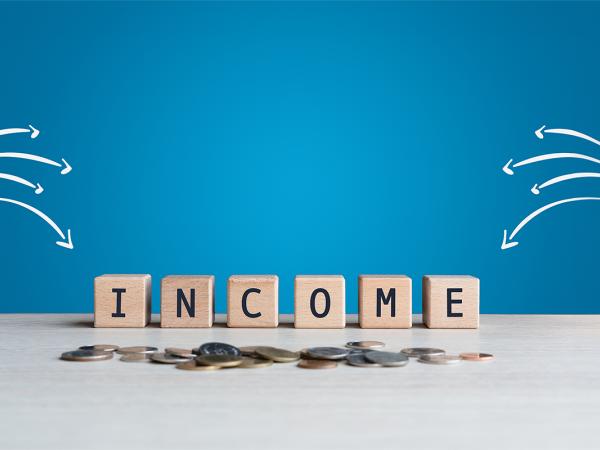Changes to reporting income from self-employment and partnerships
This month HMRC are writing to around 100,000 unrepresented self-employed individuals or trading partnerships who do not have an accounting period ending between 31 March and 5 April. The letter is highlighting significant new changes to how these businesses will need to report their accounting information on their tax returns, which affects what profits they pay tax on in a tax year. These changes known as ‘basis period reform’ or ‘reporting on a tax year basis’, will affect the 2023/24 tax return onwards.

HMRC letter
HMRC have only sent the letter to businesses who they have identified as not preparing their accounts with an accounting period end date of 31 March, 1 April, 2 April, 3 April, 4 April and 5 April and who file their tax returns themselves.
If you are self-employed or a partner in a trading partnership and have received this letter but do prepare your business accounts to a date ending between 31 March and 5 April each year, then apart from checking your overlap relief position (see below), HMRC say you should not need to do anything.
If you don’t prepare your accounts to a date ending between 31 March and 5 April each year, then you will need to consider how basis period reform will affect you and whether you want to take any action such as changing your accounting period before you prepare your 2023/24 self assessment tax return. This may be the first time you have heard about these changes so it may be helpful to read the more detailed information available to help you understand the changes. We have produced detailed guidance on our website and the letter explains what information and help HMRC can provide to you.
Some of the areas you will need to start considering include:
- Understanding the new reporting rules
-
The new reporting rules start from the 2024/25 tax year but the 2023/24 tax year is the transitional year and therefore the 2023/24 tax return is affected too. The new rules mean that from 2024/25 you will need to report your accounting information on your tax return on a tax year basis (6 April in one year to the following 5 April). However, the transitional rules may mean that your 2023/24 tax return covers an accounting period longer than 12 months. We explain in more detail how this works and what this will mean for your tax position in our guidance: Accounting date between 6 April and 30 March.
- Overlap relief
-
Overlap relief may be available to use to reduce your taxable profits. You may have overlap relief if you have prepared your accounts to a date which is not 5 April. Even if you now use a 5 April accounting year-end but had a different accounting date previously, you may have some overlap relief available.
All overlap relief must be claimed on the 2023/24 tax return or it will be lost.
HMRC may be able to provide you with information about your overlap relief based on your previous tax returns. We explain more about overlap relief and how to ask HMRC for help on our Trading Income: basis period reform webpage. It is recommended that you ask HMRC for this information sooner rather than later so that they can help you before the 2023/24 self assessment tax return deadline (usually 31 October 2024 for paper tax returns and 31 January 2025 for returns filed online).
- Changing your accounting period
-
Remember you don’t have to change your accounting date under the new basis period reform rules.
However, some small businesses may find it easier to change their accounting period to one which ends between 31 March and 5 April in 2023/24 as this may avoid complexities such as using estimated figures and means tax returns are more straightforward to complete in future years.
The rules about changing your accounting date are being relaxed for the 2023/24 tax year and we explain more about how you can make this change on our website.
- Changing the spread of additional profits
-
Many self-employed individuals and partners in partnerships will have additional profits in the 2023/24 tax year if they are affected by the new basis period reform rules. If you have additional ‘transition part’ profits then these profits will be automatically spread evenly over five tax years (2023/24-2027/28) so that you pay tax on 20% of the ‘transition part’ profits in each of the five years. This is in addition to any tax due on ‘standard’ profits made in each of the five tax years.
However, it is possible to accelerate this spreading and we explain more about this in our website guidance Spreading additional profits in the transition period.



